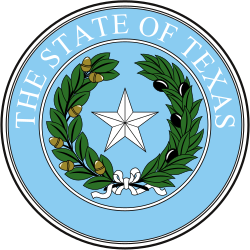| ||||||||||||||||
 County results Coke: 50–60% 60–70% 70–80% 80–90% 90–100% Chambers: 50–60% 60–70% 70–80% 80–90% No Data/Vote: | ||||||||||||||||
| ||||||||||||||||
The 1876 Texas gubernatorial election was held to elect the Governor of Texas. Incumbent Governor Richard Coke was elected to a second term in office over William Chambers, a judge of the First Judicial District. [1]


